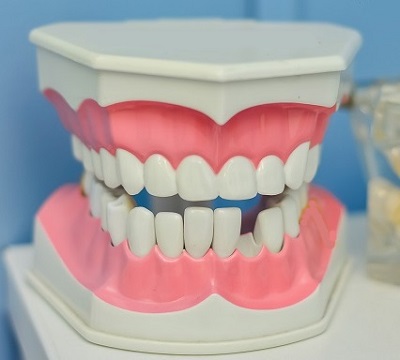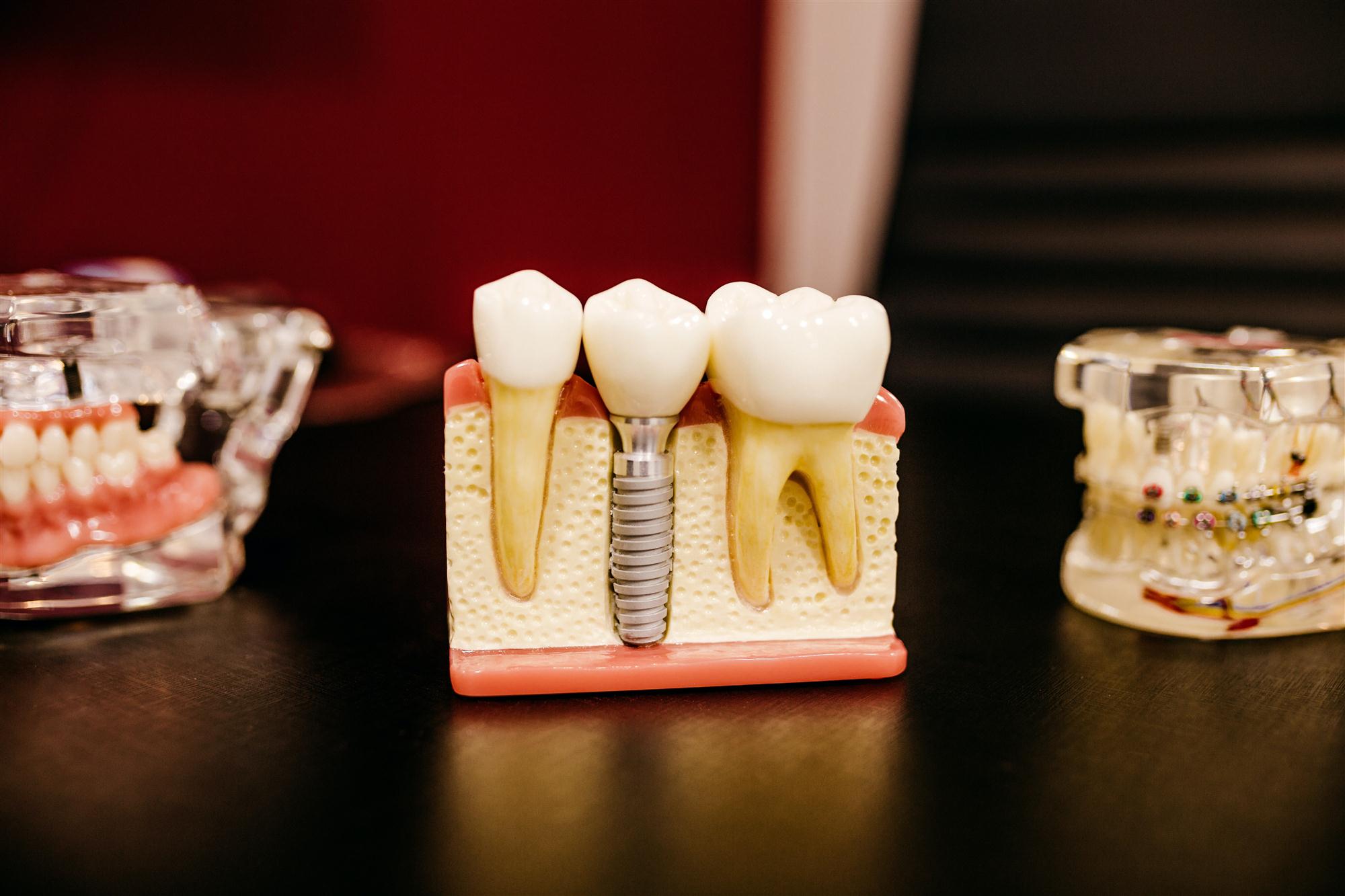Madison Tooth Extraction, Recovery and Replacement
 While healthy permanent ("adult") teeth have the potential to last a lifetime, the impact of disease and injury can disrupt this longevity by resulting in tooth loss. In certain cases, the extraction of impacted teeth, such as third molars or "wisdom teeth," becomes necessary to maintain overall oral health. Additionally, professional extractions might be required to enable replacements or to pave the way for other essential dental procedures, ensuring the continued well-being of your dental health.
While healthy permanent ("adult") teeth have the potential to last a lifetime, the impact of disease and injury can disrupt this longevity by resulting in tooth loss. In certain cases, the extraction of impacted teeth, such as third molars or "wisdom teeth," becomes necessary to maintain overall oral health. Additionally, professional extractions might be required to enable replacements or to pave the way for other essential dental procedures, ensuring the continued well-being of your dental health.
What is Tooth Extraction?
Dental extractions involve loosening and pulling out teeth using forceps. Gauze controls bleeding and aids clot formation from tooth extractions. Dentist exams assess potential complexities, especially for molars and wisdom teeth with intricate roots. X-rays help determine root shapes, and if necessary, the crown may be broken for extraction. Surgical extraction addresses root damage. This process prepares for tooth replacement post-healing.
How much does a tooth extraction cost?
In Wisconsin, tooth extraction can cost anywhere from $100 to $250 per tooth. The price of the extraction depends on many factors, such as the tooth that is being pulled, the reasons leading up to the extraction and the complexity of the procedure. Total Dental Care Madison offers various options to help patients reduce their dental visit costs through insurance and financing solutions. We accept numerous major insurance providers, including Humana and Delta Dental, and are committed to maximizing your insurance benefits.
In addition, we provide flexible financing plans through CareCredit, allowing patients to manage their payments over time. Our goal is to ensure that quality dental care is accessible and affordable for everyone. If you have any questions about insurance or financing options, please contact us for assistance.
Who can remove my tooth?
Dentists, including oral surgeons and periodontists, possess the ability to perform tooth extractions. Although general dentists handle a significant number of extractions, more complex cases are commonly directed to oral surgeons or periodontists.
Reasons You May Need Teeth Extracted
- Making Room for Permanent Teeth – For some children, baby teeth will need to be pulled to make room for incoming permanent teeth. Make sure your kids are ready to lose baby teeth by explaining how lost teeth are a normal part of growing up.
- Overcrowding – While braces can straighten teeth, there needs to be enough room. Removing a permanent tooth can keep the remaining teeth in line. This is also why wisdom teeth are extracted.
- Getting Dentures, Crowns, or Bridges – If you need to replace select teeth, more may have to be removed to achieve successful implantation. Our Four Life Changing Implants involve same-day tooth extraction and replacement.
- Trauma – An injured or diseased tooth may need to be extracted if the tooth is beyond repair. Some adult teeth may fall out on their own. Follow our guide on what to do if you lose a permanent tooth.
- Other Medical Procedure – Though rare, some medical procedures like chemotherapy may necessitate a tooth being removed to reduce the chances of infection.
Whatever reason you have for tooth extraction, the dentists of TCD in Madison will gladly discuss your options.
Wisdom Tooth Removal
In many instances, the jaw will lack sufficient room for the proper accommodation of wisdom teeth. This situation can result in the partial or angled eruption of wisdom teeth, causing them to become trapped in an unfavorable position within the jaw. This can potentially lead to infection and harm to neighboring teeth and a molar extraction may be necessary.
While it is not mandatory to extract an impacted wisdom tooth in all cases, there are situations where it could lead to decay, pain or swelling, necessitating a molar extraction. Problems tend to occur with increasing frequency after the age of 30.
Potential issues that can be by not removing wisdom teeth:
- Infection: When there's inadequate space in the jaw for wisdom teeth to emerge correctly, they can become partially impacted beneath the gum line. This enclosed area can prove challenging to clean effectively, creating an environment ripe for bacterial growth.
- Cyst Formation: Wisdom teeth that remain impacted or partially erupted can sometimes lead to the formation of cysts. Cysts are fluid-filled sacs that can develop around the impacted tooth, causing damage to the surrounding bone and teeth. If not addressed, these cysts can grow larger, potentially leading to more severe complications.
- Crowding: Wisdom teeth can disrupt this established alignment, causing adjacent teeth to shift and become crowded.
- Damage to surrounding teeth: As wisdom teeth attempt to emerge at angles or positions that don't align with the rest of the teeth, they can exert pressure on adjacent teeth. This pressure can lead to tooth damage, including cracks, chips or even root resorption.
Preparing for a Tooth Extraction
Your Total Care Dental dentist will go over what you should do in the days before your dental extraction. You may be prescribed antibiotics or other medication in advance to reduce the chance of infection during the procedure.
You should not eat or drink for several hours before your procedure. Do not smoke on the day of your surgery.
Even if you only have a local anesthetic, you will want a friend or family member to drive you home after your procedure. At your home, have a place ready for relaxing during your recovery.
Post Tooth Extraction Aftercare
 After a tooth is removed, you should take it easy for a few days. Make yourself comfortable but do not lie down flat, as this can cause bleeding to continue. Instead, sit and sleep upright for the first day. You may want to take time off from work and avoid strenuous activities.
After a tooth is removed, you should take it easy for a few days. Make yourself comfortable but do not lie down flat, as this can cause bleeding to continue. Instead, sit and sleep upright for the first day. You may want to take time off from work and avoid strenuous activities.
- Remove and replace the gauze every 30-45 minutes starting 1 hour after removal until the bleeding stops. Get the gauze damp with warm water before placing it in your mouth. Bite down but do not use too much pressure. You want the material to stay in place without moving too much.
- Do not smoke, spit, or drink from a straw after your extraction. The motion involved in all of these activities can disturb the removal site and lead to bleeding. In some cases, these actions can lead to a dry socket.
- Use a cold compress or ice pack on your jaw for 10-20 minutes at a time, with a 20-minute break between sessions. This will reduce swelling.
- Do not brush the extraction site, but do continue to clean your teeth. Brush and floss the rest of your teeth as gently as possible. Use a saltwater rinse after 24 hours to clean out your mouth following meals.
- Eat soft foods (applesauce, yogurt and ice cream) for your first few meals. Avoid any food you have to chew and hot liquids for at least 24 hours. Do not drink alcohol during this time.
Your mouth should be fully healed within 2 weeks. If your mouth does not feel normal after this time, make an appointment with Total Care Dental. Always contact our dentists if you experience continued bleeding after 24 hours, develop a fever or cannot swallow.
Side Effects of Tooth Extraction
Like any medical procedure, there are some side effects to be expected with tooth extraction. Discomfort during the healing process is common, along with swelling along the jawline.
A dry socket is one of the most common issues to occur after tooth removal. If a clot does not form at the extraction site or is knocked out, the socket will be exposed to all the air you breathe and the food you eat. Please revisit us if you notice a bad taste or odor in your mouth within 3 days of the tooth extraction. We can treat your dry socket so you begin healing properly.
Tooth Removal Alternatives
If you don't want to remove a tooth, there are two other procedures that may be options. The two alternatives to tooth removal are root canals and apicoectomy. These alternatives offer distinct approaches to addressing dental issues while aiming to preserve the natural tooth structure.
- A root canal procedure involves treating the inner portion of a tooth, specifically the pulp chamber and the root canals. This procedure can alleviate pain, prevent further infection and allow the tooth to remain intact and functional.
- An apicoectomy, also known as endodontic microsurgery, is a surgical procedure performed at the tip of a tooth's root. During an apicoectomy, a small incision is made near the root tip, and the infected tissue is removed. The root tip is then sealed to prevent further infection. This procedure aims to preserve the tooth while addressing the underlying issue at its source.






 After a tooth is removed, you should take it easy for a few days. Make yourself comfortable but do not lie down flat, as this can cause bleeding to continue. Instead, sit and sleep upright for the first day. You may want to take time off from work and avoid strenuous activities.
After a tooth is removed, you should take it easy for a few days. Make yourself comfortable but do not lie down flat, as this can cause bleeding to continue. Instead, sit and sleep upright for the first day. You may want to take time off from work and avoid strenuous activities.
 Low-cost monthly payments
Low-cost monthly payments






